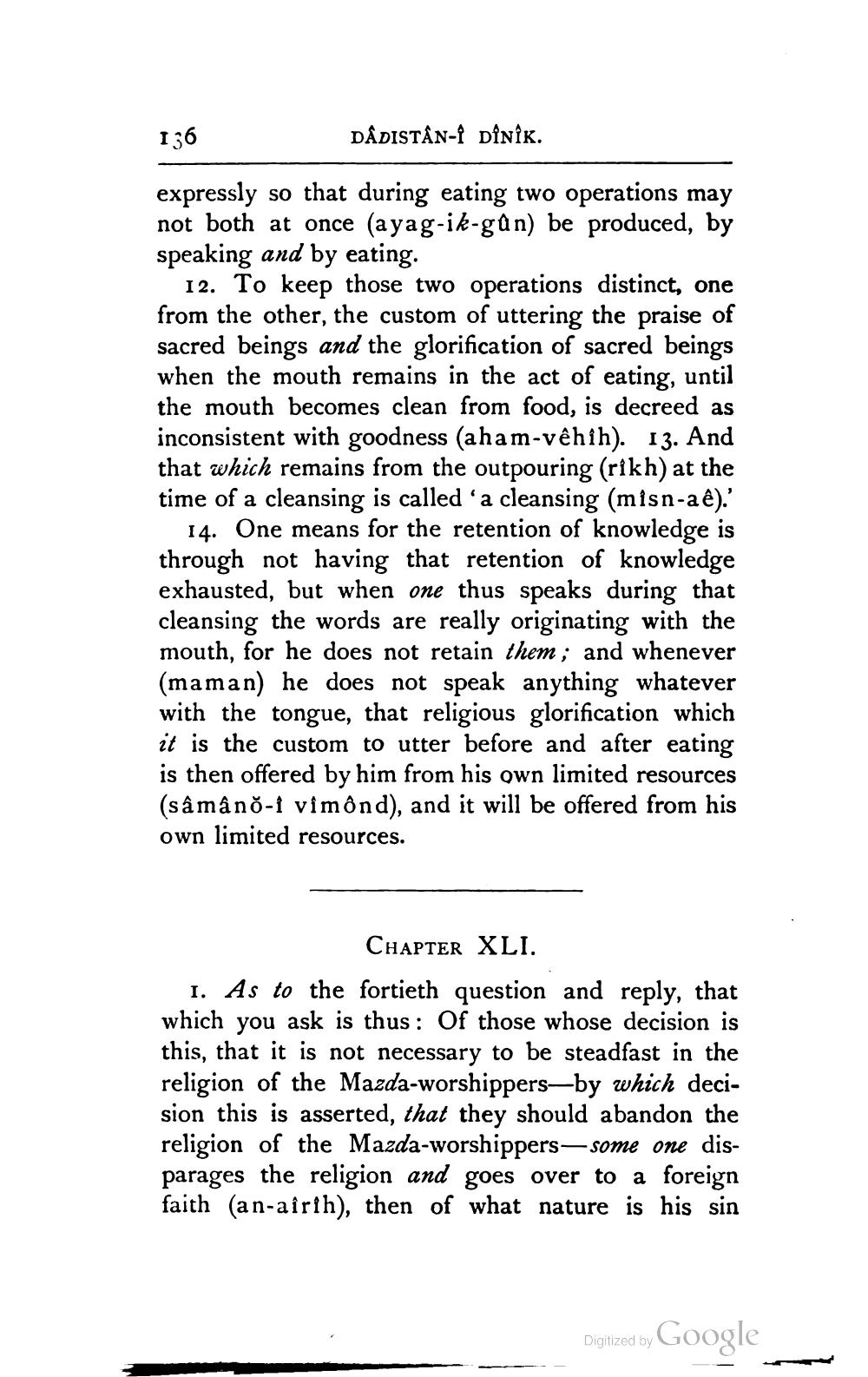________________
136
DÂDISTÂN-Î DÎNÎK.
expressly so that during eating two operations may not both at once (ayag-ik-gün) be produced, by speaking and by eating.
12. To keep those two operations distinct, one from the other, the custom of uttering the praise of sacred beings and the glorification of sacred beings when the mouth remains in the act of eating, until the mouth becomes clean from food, is decreed as inconsistent with goodness (aham-vêhih). 13. And that which remains from the outpouring (rikh) at the time of a cleansing is called 'a cleansing (misn-ae).'
14. One means for the retention of knowledge is through not having that retention of knowledge exhausted, but when one thus speaks during that cleansing the words are really originating with the mouth, for he does not retain them; and whenever (maman) he does not speak anything whatever with the tongue, that religious glorification which it is the custom to utter before and after eating is then offered by him from his own limited resources (sâmâno-î vîmônd), and it will be offered from his own limited resources.
CHAPTER XLI. 1. As to the fortieth question and reply, that which you ask is thus: Of those whose decision is this, that it is not necessary to be steadfast in the religion of the Mazda-worshippers—by which decision this is asserted, that they should abandon the religion of the Mazda-worshippers—some one disparages the religion and goes over to a foreign faith (an-aîrih), then of what nature is his sin
Digitized by Google




